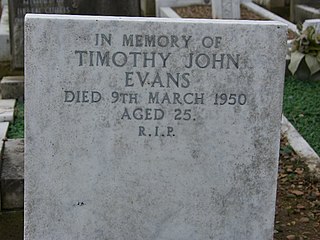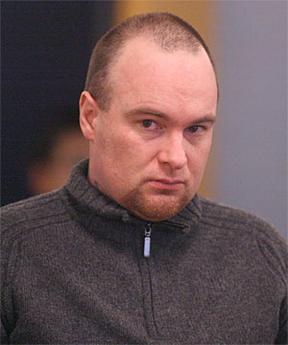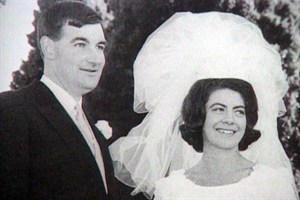In jurisprudence, double jeopardy is a procedural defence that prevents an accused person from being tried again on the same charges following an acquittal or conviction and in rare cases prosecutorial and/or judge misconduct in the same jurisdiction. Double jeopardy is a common concept in criminal law. In civil law, a similar concept is that of res judicata. Variation in common law countries is the peremptory plea, which may take the specific forms of autrefois acquit or autrefois convict. These doctrines appear to have originated in ancient Roman law, in the broader principle non bis in idem.
Criminal procedure is the adjudication process of the criminal law. While criminal procedure differs dramatically by jurisdiction, the process generally begins with a formal criminal charge with the person on trial either being free on bail or incarcerated, and results in the conviction or acquittal of the defendant. Criminal procedure can be either in form of inquisitorial or adversarial criminal procedure.
In a legal dispute, one party has the burden of proof to show that they are correct, while the other party has no such burden and is presumed to be correct. The burden of proof requires a party to produce evidence to establish the truth of facts needed to satisfy all the required legal elements of the dispute.
Circumstantial evidence is evidence that relies on an inference to connect it to a conclusion of fact—such as a fingerprint at the scene of a crime. By contrast, direct evidence supports the truth of an assertion directly—i.e., without need for any additional evidence or inference.
Prejudice is a legal term with different meanings, which depend on whether it is used in criminal, civil, or common law. In legal context, "prejudice" differs from the more common use of the word and so the term has specific technical meanings.
Ahmed Zaoui is an Algerian refugee. He arrived in New Zealand on 4 December 2002 where he sought refugee status. Objections from the Security Intelligence Service were withdrawn in September 2007, allowing him to remain in New Zealand. He was granted New Zealand citizenship in 2014.

A miscarriage of justice occurs when an unfair outcome occurs in a criminal or civil proceeding, such as the conviction and punishment of a person for a crime they did not commit. Miscarriages are also known as wrongful convictions. Innocent people have sometimes ended up in prison for years before their conviction has eventually been overturned. They may be exonerated if new evidence comes to light or it is determined that the police or prosecutor committed some kind of misconduct at the original trial. In some jurisdictions this leads to the payment of compensation.
Barry Michael George is an English man who was found guilty of the murder of English television presenter Jill Dando and whose conviction was overturned on appeal.
The 1960s Sicilian Mafia trials took place at the end of that decade in response to a rise in organized crime violence around the late 1950s and early 1960s. There were three major trials, each featuring multiple defendants, that saw hundreds of alleged Mafiosi on trial for dozens of crimes. From the authority's point of view, they were a failure; very few defendants were convicted, although later trials as well as information from pentiti confirmed most of those acquitted were Mafiosi members, and were guilty of many crimes including some of those they were acquitted of.

Antonie Dixon was a convicted New Zealand thief and murderer. His most notorious crimes were committed in an 11-hour spree of violence in 2003 in which he completely or partially severed the hands or arms of two women with a Samurai sword, shot a man dead with a homemade sub-machine gun and kidnapped another man. Dixon acquired over 150 convictions, mostly for theft and burglary; he was imprisoned at least 14 times. His former girlfriend Simonne Butler said he used methamphetamine from at least 2001.

David Harvey Crewe and Jeannette Lenore Crewe were a New Zealand farming couple who were shot to death in their home around 17 June 1970. The murders led to the wrongful conviction and subsequent pardoning of another farmer who lived nearby, Arthur Allan Thomas. A Royal Commission set up to investigate the miscarriage of justice found that a detective had fabricated evidence and placed it at the scene of the crime. No person was ever charged with planting the evidence, and the murders remain unsolved.

Joseph Francis Karam, also known by the nickname of "Clock", is a New Zealand former representative rugby footballer who played for the All Blacks. After retiring from rugby, he became a businessman. However, he is most notable for waging a successful 15-year campaign to have David Bain's convictions for murder overturned, and a subsequent campaign seeking compensation for him.
The Bassett Road machine gun murders were the murders of two men with a .45 calibre Reising submachine gun on 7 December 1963 at 115 Bassett Road in the Auckland suburb of Remuera in New Zealand. The crime received considerable media attention and captured the public imagination for many years. Although the weapon was set to single and not rapid-fire for the killings, word spread quickly of a "Chicago-style" gang murder previously unheard of in New Zealand.
Arthur Allan Thomas is a New Zealand man who was granted a Royal Pardon and compensation after being wrongfully convicted of the murders of Harvey and Jeannette Crewe in June 1970. Thomas was married and farming a property in the Pukekawa district, south of Auckland before the case. Following the revelation that the crucial evidence against him had been faked, Thomas was pardoned in 1979 and awarded NZ$950,000 in compensation for his 9 years in prison and loss of earnings.
The Double Jeopardy Clause of the Fifth Amendment to the United States Constitution provides: "[N]or shall any person be subject for the same offence to be twice put in jeopardy of life or limb..." The four essential protections included are prohibitions against, for the same offense:

On the morning of September 4, 2005, six days after Hurricane Katrina struck New Orleans, members of the New Orleans Police Department (NOPD), ostensibly responding to a call from an officer under fire, shot and killed two civilians at the Danziger Bridge: 17-year-old James Brissette and 40-year-old Ronald Madison. Four other civilians were wounded. All the victims were African-American. None were armed or had committed any crime. Madison, a mentally disabled man, was shot in the back. The shootings caused public anger and further eroded the community's trust in the NOPD and the federal response to Hurricane Katrina overall.
Mr. Big is a covert investigation procedure used by undercover police to elicit confessions from suspects in cold cases. Police officers create a fictitious grey area or criminal organization and then seduce the suspect into joining it. They build a relationship with the suspect, gain their confidence, and then enlist their help in a succession of criminal acts for which they are paid. Once the suspect has become enmeshed in the criminal gang they are persuaded to divulge information about their criminal history, usually as a prerequisite for being accepted as a member of the organization.

Ryan W. Ferguson is an American man who spent nearly 10 years in prison after being wrongfully convicted of a 2001 murder in his hometown of Columbia, Missouri. At the time of the murder, Ferguson was a 17-year-old high-school student.
The Larnoch Road murders were a high-profile double-murder case in Auckland, New Zealand. On 21 August 1989, Deane Wade Fuller-Sandys, a 21-year-old Auckland tyre-fitter, left home to go fishing. He never returned. His body was never found and authorities initially believed he probably drowned after being swept out to sea at West Auckland's Whatipu Beach, where his car was discovered shortly afterwards. Five days later, on 26 August 1989, Leah Romany Stephens, a 20-year old Auckland sex worker, also disappeared. Her skeletal remains were discovered in a forest near the Muriwai Golf Course three years later, in June 1992. Police enquiries at the time did not lead to an arrest in her case either.

Grace Emmie Rose Millane was a British tourist who was murdered in Auckland, New Zealand, in December 2018. A 26-year-old man, Jesse Shane Kempson, was charged with her murder on 8 December 2018, and her body was found in the Waitākere Ranges to the west of Auckland the following day. Kempson's name was initially suppressed by New Zealand courts, meaning it could not be published in New Zealand; however, some international media outlets chose to publish it contrary to the New Zealand court order.







